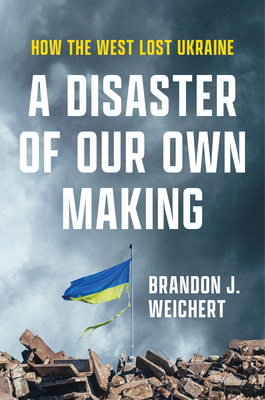A Disaster of Our Own Making: How the West Lost Ukraine

A Disaster of Our Own Making: How the West Lost Ukraine
This searing account of the conflict between Russia and Ukraine reveals that, contrary to popular media narratives, Western hawks are culpable in triggering a war that has cost many thousands of innocent Ukrainian lives.
In 1991, the Cold War ended in a bloodless victory for NATO. After 45 years of a grueling, nuclear-tinged Cold War, communism was dead, Eastern Europe was free, Russia looked to the West for how to build a better, freer future for itself, and liberal democracy and capitalism reigned supreme. But in the ruins of the last war lie the seeds for the next great conflict. Floating just beneath the surface of post-Cold War international relations was the question of what was to become of NATO with the loss of the Soviet Union as a threat. Western leaders believed expansion into the former Soviet states of Eastern Europe was the natural next step. But the Russians opposed this. For 30 years, a succession of Russian leaders--from Mikhail Gorbachev to Boris Yeltsin to Vladimir Putin--warned the West that NATO's expansion into territories bordering Russia, notably into Ukra
PRP: 216.94 Lei
Acesta este Prețul Recomandat de Producător. Prețul de vânzare al produsului este afișat mai jos.
195.25Lei
195.25Lei
216.94 LeiLivrare in 2-4 saptamani
Descrierea produsului
This searing account of the conflict between Russia and Ukraine reveals that, contrary to popular media narratives, Western hawks are culpable in triggering a war that has cost many thousands of innocent Ukrainian lives.
In 1991, the Cold War ended in a bloodless victory for NATO. After 45 years of a grueling, nuclear-tinged Cold War, communism was dead, Eastern Europe was free, Russia looked to the West for how to build a better, freer future for itself, and liberal democracy and capitalism reigned supreme. But in the ruins of the last war lie the seeds for the next great conflict. Floating just beneath the surface of post-Cold War international relations was the question of what was to become of NATO with the loss of the Soviet Union as a threat. Western leaders believed expansion into the former Soviet states of Eastern Europe was the natural next step. But the Russians opposed this. For 30 years, a succession of Russian leaders--from Mikhail Gorbachev to Boris Yeltsin to Vladimir Putin--warned the West that NATO's expansion into territories bordering Russia, notably into Ukra
Detaliile produsului










